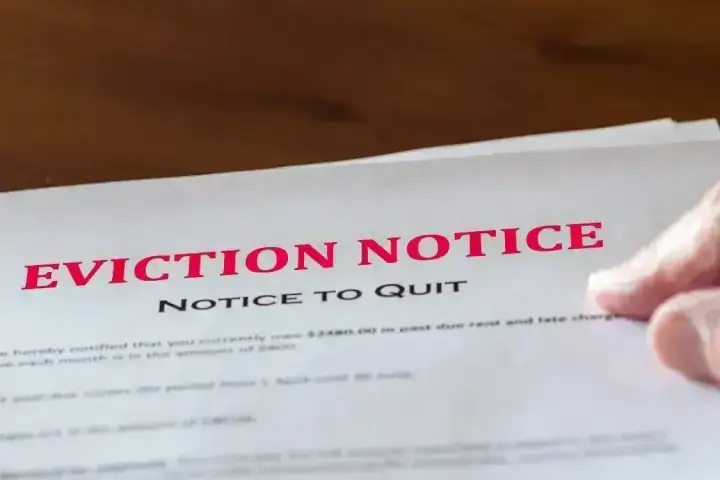Understanding Eviction Laws in Wisconsin
Wisconsin's eviction laws stipulate a detailed process for removing tenants from rental properties. Landlords must adhere to specific notice requirements and legal grounds for eviction, while tenants are afforded certain rights during this process.
What Is the General Process for an Eviction?
The eviction process in Wisconsin follows a set procedure which begins with the landlord providing the tenant with an eviction notice. This notice must correspond with the reason for the eviction, such as non-payment of rent or violation of lease terms. Should the tenant not rectify the issue, the landlord may then file an eviction action with the court. After filing, court proceedings will determine the validity of the eviction. Costs for initiating an eviction action have a standard filing fee of $94.50 which applies to all counties; an additional fee is required for electronic filings.
What Notices are Required and on What Legal Grounds?
Wisconsin law mandates different types of eviction notices depending on the violation. For non-payment of rent, a 5-day notice is typical, giving tenants a short period to pay or vacate the premises. When lease terms are breached, landlords may issue a 14-day notice to comply or vacate. Alternatively, month-to-month tenants can be ended with a 28-day notice, without the need for stating a cause as per Wisconsin state law. These notices must be served before landlords can move forward with legal action.
What Are the Tenant's Rights and Landlord Obligations?
Tenant rights in Wisconsin assure that eviction is a legal process that requires appropriate notice and a court order. Tenants have the right to receive timely eviction notices and can dispute the eviction in court. They are also entitled to remain in the property until the eviction is lawfully executed. On the other hand, landlords have the obligation to maintain the landlord-tenant relationship in accordance with the lease agreement. They are prohibited from forcefully evicting a tenant without a court's writ of restitution. Wisconsin statute strictly prohibits "self-help" evictions, ensuring that the eviction process respects the legal rights of tenants.
The Financial Aspects of Eviction in Wisconsin
The eviction process in Wisconsin carries various costs, from court filing fees to other potential expenditures associated with regaining possession of a property and preparing for future tenants. Landlords must be prepared for these expenses, and tenants should be aware of the potential financial implications of eviction.
What Are the Costs Involved in Filing for Eviction?
- Filing Fees: In Wisconsin, the filing fee for initiating an eviction action is $94.50 across all counties. If the lawsuit is filed electronically, an additional fee of $20 may apply.
- Service of Summons and Complaint: Proper service is essential for a court to have jurisdiction over a tenant. Landlords typically hire a process server or sheriff to serve the summons and complaint on the tenant, which incurs an additional cost.
- Attorney Fees: If a landlord chooses to enlist the help of an attorney to navigate the eviction process, this will add to the overall cost. Attorney fees can vary widely based on the complexity of the case and the length of court proceedings.
- Court Hearing and Judgment Costs: When an eviction case goes to court, there may be costs associated with obtaining a judgment – this includes the costs of preparing for and attending a court hearing.
What Are Potential Additional Expenses for Landlords and Tenants?
- Lost Rent: Landlords may incur the loss of rental income during the eviction process, especially if the eviction is due to non-payment of rent.
- Property Maintenance and Repairs: After a tenant is evicted, the landlord might face maintenance and repair costs to make the property fit for new renters, especially if there was property damage.
- Relocation Costs for Tenants: Tenants who are evicted may need to bear the costs of relocating, which could include rent for a new residence, moving expenses, and potentially higher rental rates if the eviction leads to difficulty securing housing.
- Legal Repercussions: If a tenant chooses to file a counterclaim for reasons such as discrimination or other lease violations, this may lead to additional legal expenses for both parties.
Both landlords and tenants should carefully consider these financial aspects when faced with an eviction to fully understand the responsibilities and possible financial impact such proceedings may entail.
Eviction Procedures and Consequences in Wisconsin
In Wisconsin, the eviction process is a legal procedure that requires adherence to specific steps by landlords, and carries significant outcomes for tenants, including the potential loss of their housing and legal consequences.
What Are the Steps of Court Hearings and Legal Representation?
When initiating an eviction, the landlord must provide the tenant with a proper notice, often a five-day notice, if the eviction is due to unpaid rent or a 14-day notice for lease violations. Failure to repair damages or cease disturbances are among the violations that can lead to eviction. After the notice period, if the tenant has not resolved the issue or moved out, the landlord may file an eviction lawsuit in small claims court. The court then schedules a hearing, where both parties can present their case. At this stage, it's crucial for tenants to know that they have rights, including seeking legal aid or representation by an attorney to present defenses, such as discrimination or violations of health and safety regulations by the landlord.
A judge presides over the eviction hearing and makes a judgment, which can include a court order for the tenant to move out. Tenants can seek guidance from resources like the Tenant Resource Center for understanding their rights and potential defenses.
How Does the Post-Eviction Process Protect Tenants?
Should the court rule in favor of the landlord, a writ of restitution is issued and the eviction becomes final. This court order allows a sheriff to remove the tenant from the property. Post-eviction, tenants in Wisconsin have protections in place such as the prohibition of “self-help” eviction tactics, meaning landlords cannot change locks or remove belongings without following the legal process.
Moreover, any belongings left behind need to be stored by the landlord for at least one year, giving the tenant the opportunity to claim them. Should the tenant feel the eviction was carried out based on discrimination or as a drug nuisance without proper evidence, they may have ground to file a complaint against the landlord. As part of the protections, tenants should be aware of illegal practices such as eviction due to criminal activity without proper legal process. It's important to note that landlords must maintain the rental unit and keep up with necessary maintenance and repairs even during the eviction process.
Frequently Asked Questions
Navigating the eviction process in Wisconsin involves understanding the associated costs, legal procedures, and rights of landlords and tenants. These FAQs address common inquiries related to this topic.
What are the typical court fees associated with filing an eviction in Wisconsin?
In Wisconsin, the average court filing fee for an eviction action is $94.50. If the lawsuit is filed electronically, an additional $20 fee may apply.
Can you explain what an eviction return date signifies in Wisconsin?
The eviction return date in Wisconsin is the court-scheduled hearing where both parties, the landlord and tenant, are expected to appear and present their case before the judge. It is a critical step in the eviction process.
What are the eviction laws in Wisconsin when there is no formal lease?
Even without a formal lease, tenants in Wisconsin are granted certain protections under the law. Evicting a tenant without a lease typically requires the landlord to provide a 28-day notice to vacate before filing for eviction.
How can a tenant legally respond to a 5-day eviction notice in Wisconsin?
A tenant in Wisconsin may respond to a 5-day eviction notice by either curing the issue within the allotted time, such as by paying due rent or ceasing a lease violation, or by preparing to contest the eviction in court.
What is the process for evicting a family member who resides in your property in Wisconsin?
To evict a family member living on a property in Wisconsin, the property owner must follow a legal eviction process which includes serving a notice to vacate and then going through the formal eviction court proceedings if the family member does not leave voluntarily.
What are the immediate consequences following an eviction judgement in Wisconsin?
Once an eviction judgment is granted in Wisconsin, the tenant typically has a brief period to vacate the property, or law enforcement may forcibly remove them within the timeframe ordered by the court. This leads to a record of eviction, which can affect the tenant's future housing opportunities.






.png)
.jpg)
.jpg)


.png)